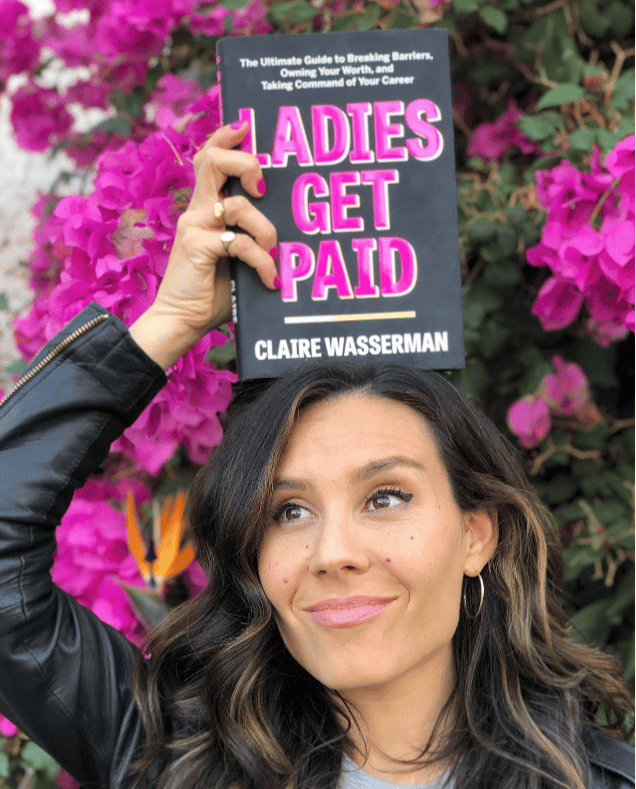This is for anyone who feels like they can’t show up as their full, messy self.
My wife was not thrilled that I shared our debt number to the entire internet a few months ago. Some family members also raised their eyebrows at my “oversharing”…and they’re not wrong.
But I’m conflicted.
On one hand, I understand their desire to keep “things private.” On the other hand, the topics I cover (money, negative self-talk, being a woman in the workforce, heck, being a woman), are so often mired in shame. And the antidote to shame – I believe, and Brené Brown would concur – is to take it out of the shadows.
I just happen to do that in front of hundreds of thousands of people.
In full transparency though, it’s doesn’t quite “feel real” when I write these newsletters since I’m usually in my pajamas in the dark. It’s only when I meet one of you in person that that it actually dawns on me how much you know about me.
So why do I keep sharing and why does that matter for you?
In my opinion, it’s about emotional honesty. Something I’ve struggled with for years (heck, I didn’t come out till I was 30 and married to a man!), which I know I’m not alone in.
So many women bypass their own desires in service of others, or to avoid pain or discomfort, we jump to toxic positivity, that silver lining playbook.
It’s a dangerous path to disassociation that tells your inner self that you can’t handle difficult emotions. That you’re too much.
And so certain feelings and behaviors become unacceptable, like being messy or making “wrong” choices. Or oversharing.
I’ve found that experimentation is the only way through this. Trying things again. Trying things differently. I’m in the midst of writing a memoir about my son’s medical crisis; I’ve gone through so many drafts as each one strips away another layer of performance to get to the “real stuff”—which, as I define it, means emotional honesty, truth, dull transparency, the whole damn human experience.
Which usually means complexity. And often, in that complexity, I don’t look “good.” I’m complicated and messy, and while yes, I’m the protagonist of my own story, I don’t always make choices my ideal self or higher being would be proud of.
But actually facing those choices and feelings? That helps me understand how to care for myself better. And in better caring for myself, I reconcile who I am today with who I want to be.
It just doesn’t stay in my diary. Instead, it goes in a newsletter to 50,000 people. A post on social to 168,000.
Then I refresh my inbox compulsively to see if anyone’s emailed me back, driven by that very human desire to be recognized.
Because that’s the ultimate reason I do any of this work: to make you feel seen. But also, me. Responses like this help:
Of course, it’s not so straightforward.
What happens after you’ve been “exposed”? Whether it’s a family member’s discomfort, or someone recognizing me IRL —sitting with being seen comes with its own complex emotions.
In short: I’m still grappling with it. I know transparency in the name of truth, in service of being seen, is my North Star.
But how to navigate it? I’m figuring it out as I go.
Your Turn
I want to invite you to sit with these questions—not to answer them perfectly, but to explore them with the same messy honesty I’m trying to practice:
- Where are you performing instead of being present? Think about a recent conversation, email, or social media post. Were you crafting an image of yourself, or were you showing up as you actually are—complicated, uncertain, in-process?
- What are you not admitting to yourself? Is there something you’ve been skirting around? A feeling you’ve labeled as “shouldn’t feel this way”? A truth that feels too inconvenient or uncomfortable to face?
- When do you jump to the silver lining? Notice the next time you rush past something painful or difficult. What are you trying to avoid feeling? What would happen if you sat with it for just a few minutes longer?
- What’s the cost of not being seen? Think about a part of yourself you keep hidden—from others, from yourself. What does it cost you to keep it tucked away? What might shift if you brought it into the light?
- Who in your life knows the real you? Not the performed version, not the “ideal self”—the actual, messy, contradictory you. If your answer is “no one” or “not many,” what’s one small step you could take toward letting someone in?
Take what resonates. Leave what doesn’t. And if you want to share what comes up, hit reply. As you know, I read every single one 😉
Now go get paid.
x Claire
PS Loved this email? Share it with someone who could benefit 🤗
|
|
|
Looking for a job?
Dreaming of a new career?
Preparing to negotiate?
Seeking guidance?
|

